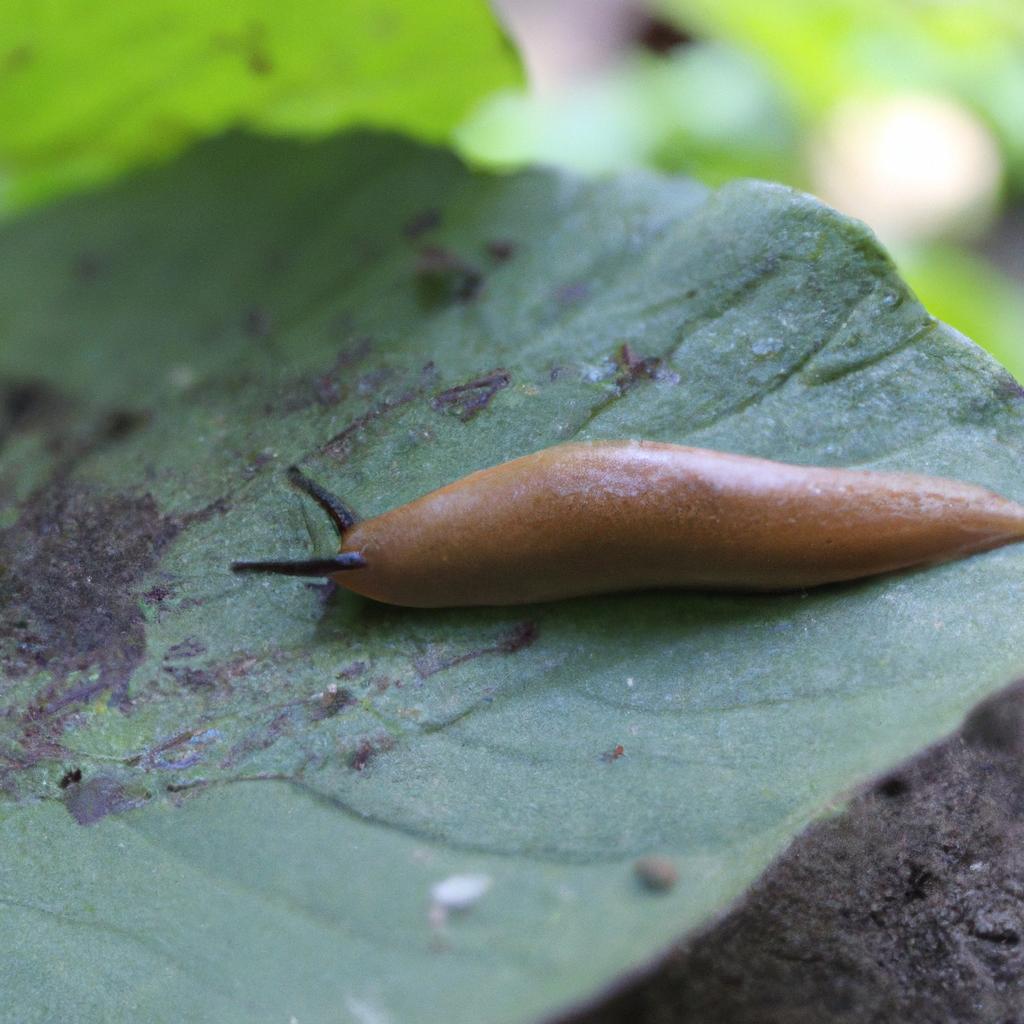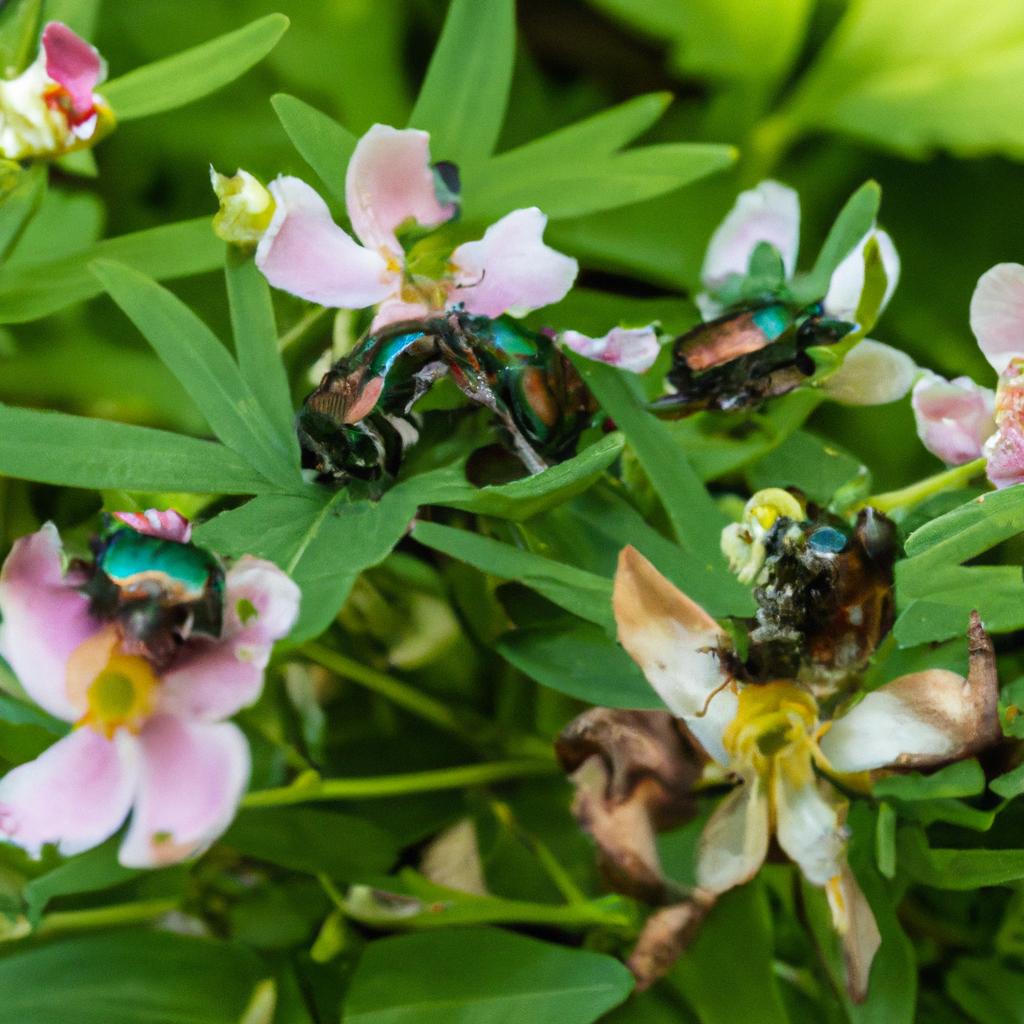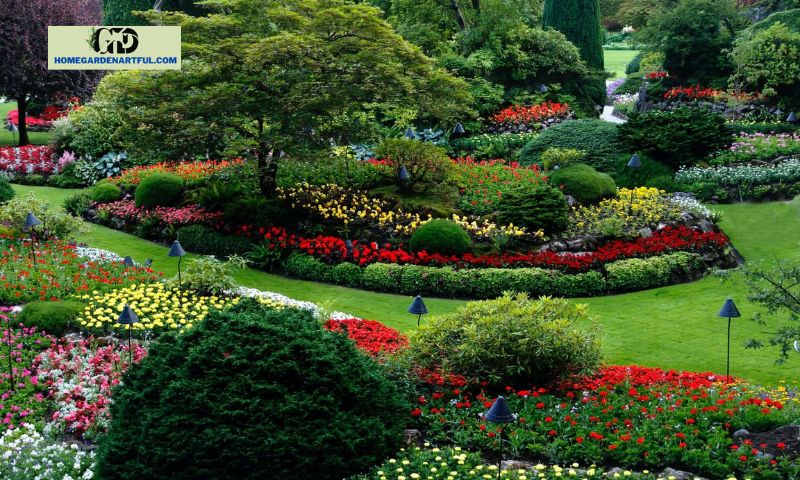Gardening in Virginia can be a rewarding experience, but it’s not without its challenges with Virginia Garden Pests. One hurdle that every gardener faces is dealing with garden pests. These tiny critters can wreak havoc on your plants, leaving you frustrated and your garden in shambles. But fear not! By learning from homegardenartful.com about the common garden virginia garden pests and implementing effective management strategies, you can protect your garden and ensure its success.
Why is it crucial to identify and manage garden pests in Virginia?
Identifying and managing garden pests is essential for the well-being of your plants and the overall health of your garden. These pests can cause significant damage to your beloved flowers, vegetables, and herbs. They munch on leaves, suck plant sap, bore into fruits, and even transmit diseases. Moreover, if left unchecked, a small pest problem can quickly turn into a full-blown infestation, leading to stunted growth, reduced yield, and sometimes even the death of your plants.
So, how can you ensure a pest-free garden? The first step is to familiarize yourself with the common garden pests found in Virginia. By recognizing these troublemakers, you can take timely action and prevent them from wreaking havoc on your plants. From aphids to slugs, snails to Japanese beetles, and even the occasional deer, Virginia gardens are home to a diverse range of pests.
In the upcoming sections, we will delve into the characteristics and behaviors of these pests, understand their impact on your garden, and explore effective prevention and control measures. By the end of this guide, you’ll be equipped with the knowledge and tools to conquer garden pests in Virginia and create a thriving garden paradise.
Stay tuned for Section II, where we will take a closer look at the types of garden pests commonly encountered in Virginia. Remember, knowledge is power when it comes to gardening, and understanding your enemies is the first step toward victory!
Next Section: Types of Garden Pests in Virginia
Types of Garden Pests in Virginia

Understanding the Common Culprits
When it comes to gardening in Virginia, being familiar with the types of garden pests that frequently wreak havoc is crucial to maintaining a thriving garden. Let’s explore some of the most common pests you may encounter:
1. Aphids: Tiny Menaces with a Big Appetite
Aphids are notorious for their ability to rapidly reproduce and infest plants in large numbers. These small, soft-bodied insects feast on the sap of plants, causing leaves to curl, deform, and turn yellow. Their presence often attracts ants, making it important to address aphid infestations promptly.
2. Slugs and Snails: Slimy Saboteurs
Slugs and snails can quickly become the bane of a gardener’s existence. Active during moist conditions, they leave behind a trail of destruction as they devour tender leaves, stems, and fruits. Their feeding activity often results in irregular holes and ragged edges on plant foliage, hindering growth and diminishing the aesthetic appeal of your garden.
3. Japanese Beetles: Nature’s Uninvited Guests
With their metallic green bodies and copper wings, Japanese beetles may seem visually striking, but their presence can spell trouble for your garden. These pests devour leaves, flowers, and fruits, leaving skeletonized foliage in their wake. They are particularly fond of roses, hibiscus, and grapevines, making them a common nuisance for many Virginia gardeners.
4. Deer: Majestic Visitors Turned Garden Marauders
While deer may be enchanting creatures to behold, they can wreak havoc on your garden. These graceful herbivores have a voracious appetite for many plants, including flowers, vegetables, and shrubs. Their browsing behavior can result in severe plant damage, leaving gardeners frustrated and in search of effective deterrents.
Taking Control of Virginia’s Garden Pests
Now that we’ve familiarized ourselves with some of the common Virginia Garden Pests, it’s time to delve into effective prevention and control measures. In the upcoming sections, we will explore identification techniques, discuss the impact of these pests on your garden, and provide valuable insights into managing and mitigating their damage.
Stay tuned for Section III, where we will dive deeper into the identification and characteristics of Virginia’s garden pests. Remember, armed with knowledge, you can tackle any pest problem that comes your way and create a garden that thrives in the face of adversity.
Next Section: Identification and Characteristics of Virginia Garden Pests
Identification and Characteristics of Virginia Garden Pests

Aphids: The Tiny Sap-Suckers
Aphids are common garden pests that come in various colors and sizes, ranging from green to black. These tiny insects have soft bodies and feed by piercing plant tissues to extract sap. Look out for clusters of aphids on the undersides of leaves or curled leaves, indicating their presence. Besides causing leaves to yellow and distort, aphids can also transmit viral diseases to your plants.
Slugs and Snails: The Slimy Intruders
Slugs and snails are nocturnal pests that can wreak havoc on your garden overnight. These slimy intruders leave a trail of destruction, devouring leaves, stems, and even fruits. Slugs have soft bodies and move by gliding, while snails carry their shells on their backs. Keep an eye out for their silvery slime trails and holes in leaves or fruits, as these are telltale signs of their presence.
Japanese Beetles: The Voracious Leaf-Eaters
Japanese beetles are metallic green insects with copper-colored wings that feast on the foliage of a wide range of plants. These voracious leaf-eaters skeletonize leaves, leaving only the veins behind. You can easily spot them with their distinctive coloring and the buzzing sound they make when in large numbers. Japanese beetles can turn a lush garden into a barren landscape if left unchecked.
Deer: The Majestic Garden Invaders
While not an insect, deer can be a significant challenge for gardeners in Virginia. These majestic creatures have a taste for tender plants and can cause extensive damage to your garden, especially during the growing season. Look for evidence of browsing, such as jagged edges on leaves, broken branches, or trampled vegetation. Fencing and repellents can help deter deer from entering your garden sanctuary.
Garden pests in Virginia can cause a range of damages, from distorted leaves and stunted growth to complete plant loss. Identifying these pests, understanding their physical characteristics, and recognizing the signs of their presence is crucial for effective pest management. In the next section, we will explore the impact of garden pests on Virginia gardens and discuss the importance of implementing preventive measures.
Next Section: Impact of Garden Pests on Virginia Gardens
Impact of Garden Pests on Virginia Gardens
Virginia Garden Pests can have a detrimental impact on the health and productivity of your beloved plants. Understanding the negative effects these pests can have is crucial for developing effective pest management strategies. Let’s explore the various ways these garden pests can wreak havoc on your garden.
Stunted Growth and Reduced Yield
One of the primary consequences of garden pests is stunted growth and reduced yield in your plants. Pests like aphids and spider mites feed on the sap of plants, depriving them of essential nutrients. This nutrient deficiency can lead to stunted growth, weak stems, and smaller, underdeveloped fruits or vegetables. As a result, your garden may not reach its full potential, and you may be left with disappointing harvests.
Transmission of Plant Diseases
Garden pests can also act as carriers of plant diseases, spreading them from one plant to another. For example, aphids and whiteflies are notorious for transmitting viruses that can cause severe damage to your plants. These diseases can lead to wilting, yellowing leaves, and even death in extreme cases. By feeding on infected plants and then moving on to healthy ones, pests can quickly turn a localized problem into a widespread epidemic in your garden.
Disrupted Ecosystem Balance
Garden pests, particularly invasive species like Japanese beetles, can upset the delicate balance of your garden ecosystem. These pests typically have no natural predators in Virginia and can rapidly multiply, overwhelming your plants. In turn, the absence or decline of beneficial insects, such as ladybugs and lacewings, that naturally control pests can further exacerbate the problem. This disruption in the ecosystem can create a vicious cycle, making it harder to maintain a healthy and thriving garden.
To mitigate the impact of garden pests on your Virginia garden, it is crucial to implement effective prevention and control measures. In the next section, we will explore various strategies and techniques to keep these pesky invaders at bay. Remember, by taking proactive steps, you can protect your plants, maximize their growth and yield, and create a vibrant and flourishing garden.
Next Section: Prevention and Control Measures for Virginia Garden Pests
Prevention and Control Measures for Virginia Garden Pests
Tips and Techniques for Preventing Infestations and Minimizing Damage
When it comes to managing Virginia Garden Pests, prevention is key. By implementing a few simple strategies, you can minimize the risk of infestations and keep your garden thriving. Here are some tips and techniques to consider:
- Maintain Garden Hygiene: Keep your garden clean and tidy by regularly removing weeds, fallen leaves, and debris. Pests often hide in these areas, so eliminating their hiding spots reduces the risk of infestation.
- Practice Crop Rotation: Rotate your crops each season to disrupt pest life cycles. This technique helps prevent the buildup of pests that target specific plants, reducing the chances of an infestation.
- Use Companion Planting: Planting certain flowers, herbs, or vegetables together can help repel pests or attract beneficial insects that prey on garden pests. For example, marigolds can deter aphids, while basil can repel mosquitoes and flies.
- Implement Physical Barriers: Protect vulnerable plants by using physical barriers such as netting, fences, or row covers. These barriers create a barrier between your plants and pests, preventing them from causing damage.
Organic and Chemical Control Methods Suitable for Virginia Gardens
Sometimes, prevention alone may not be enough to manage garden pests effectively. In such cases, you can opt for organic or chemical control methods to tackle the infestation. Consider the following options:
- Organic Pest Control: Organic methods focus on using natural substances and biological controls to manage pests. Examples include introducing beneficial insects like ladybugs or lacewings, using neem oil or insecticidal soaps, and employing techniques like handpicking pests.
- Chemical Pest Control: When faced with severe infestations, chemical control methods can be effective. However, it is essential to choose products that are labeled for garden use and follow the instructions carefully. Always prioritize products that are safe for the environment and beneficial insects.
Importance of Early Detection and Regular Monitoring
Early detection plays a vital role in managing Virginia Garden Pests. Regularly inspect your plants for any signs of damage, such as chewed leaves, wilting, or discoloration. Act promptly at the first sign of trouble to prevent the infestation from spreading.
Monitoring your garden regularly helps you stay one step ahead of pests. Set up traps, use sticky tapes, or conduct visual inspections to identify the presence of pests. By monitoring your garden’s health, you can take immediate action when needed, ensuring the well-being of your plants.
By implementing these prevention and control measures, you can maintain a healthy and vibrant garden in Virginia. Remember, a proactive approach and a keen eye are your best allies in the battle against garden pests.
Next Section: Additional Resources for Virginia Gardeners
Conclusion
In conclusion, managing Virginia Garden Pests is crucial for the success of your gardening endeavors. By familiarizing yourself with common garden pests and implementing effective prevention and control measures, you can ensure the health and productivity of your garden.
Identifying garden pests early on is key to preventing infestations and minimizing damage. Regular monitoring and inspection of your plants will help you spot any signs of trouble and take immediate action. Whether it’s aphids, slugs, snails, Japanese beetles, or even deer, understanding the characteristics and behaviors of these pests will enable you to tailor your control strategies accordingly.
When it comes to pest control, you have a range of options at your disposal. Organic methods such as companion planting, biological controls, and homemade remedies offer environmentally friendly alternatives. On the other hand, chemical treatments can be effective when used judiciously and as a last resort. Remember to follow the instructions carefully and consider the potential impact on beneficial insects and the environment.
Additionally, seeking guidance from local extension offices, participating in gardening forums, and exploring reputable websites can provide valuable insights and resources for managing garden pests in Virginia. By staying informed and continuously learning, you can stay one step ahead of these pesky invaders.
So, don’t let garden pests deter you from cultivating a thriving garden in Virginia. With proper identification, proactive prevention, and timely control measures, you can create a beautiful and bountiful oasis that brings joy and satisfaction throughout the gardening season.
Now armed with the knowledge and strategies outlined in this guide, go forth and conquer those unwanted guests in your Virginia garden. Happy gardening!
End of Article


